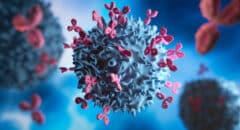 If you’re a caffeine addict, join the club. Caffeine is the most widely used drug in the world. Caffeine is considered a drug because the effects of caffeine can change the way you act and feel. And like other drugs, you can also get addicted to caffeine and have withdrawal symptoms if you stop taking it.
If you’re a caffeine addict, join the club. Caffeine is the most widely used drug in the world. Caffeine is considered a drug because the effects of caffeine can change the way you act and feel. And like other drugs, you can also get addicted to caffeine and have withdrawal symptoms if you stop taking it.
Effects of Caffeine
Caffeine does have some benefits. It wakes up your brain and makes you feel more alert. Caffeine also can boost your energy level and keep you from feeling tired for a while. The effects of caffeine take about 30 to 45 minutes to occur. They last for eight to 10 hours.
The side effects of caffeine at higher doses include restlessness, anxiety, irritability, and insomnia. Withdrawal symptoms from high doses of caffeine can include headache and fatigue. Too much caffeine can cause your heart to beat faster. It can increase your blood pressure. Caffeine can also cause you to become dehydrated because caffeine is a diuretic, which means it increases the amount of urine you put out.
Coffee is what comes to mind when most people think “caffeine.” Many items contain caffeine (energy drinks, teas, and some foods) but about 75 percent of the caffeine consumed in America comes from drinking coffee. That’s not a bad thing because drinking coffee has been linked to a lot of benefits recently. These may include a decreased risk for:
- Parkinson’s disease
- Stroke
- Prostate cancer
- Diabetes
- Depression
But it is possible to have too much of a good thing. Most of the benefits of drinking coffee come from ingredients in the bean other than caffeine. When it comes to the caffeine itself, there is a limit to how much is beneficial.
Amounts of Caffeine in Food and Drinks
Coffee may be the most common source of caffeine, but there are a lot of other sources. Cup for cup, tea has about half as much caffeine as coffee. Other sources include colas, energy drinks, over-the-counter medicines, chocolate, gum, and some snack foods.
When it comes to the amount of caffeine in drinks, don’t try to guess how much by the size of your beverage. The amount of caffeine in coffee and tea depends on how they are brewed. Different brands can have different caffeine levels. One small energy drink could have the same amount of caffeine as a huge cup of coffee. You need to read labels.
You can get the complete list of caffeine amounts in food, drinks, and drugs at the website for the Center for Science in the Public Interest: http://www.cspinet.org/new/cafchart.htm.
How Much Caffeine Is Safe for You?
Most people do not have to worry about cutting back on caffeine as long as they are staying under about 500 milligrams. That’s about four cups of coffee a day. According to the Food and Drug Administration (FDA), the average American consumes about 300 milligrams of caffeine per day.
Most experts agree that getting more than 600 milligrams of caffeine per day is too much. But if you are sensitive to caffeine, even one or two cups of coffee could cause side effects. Children may be very sensitive to the effects of caffeine. For pregnant women, the safe limit is only 200 milligrams.
You may need to be extra careful about caffeine if you have a heart condition, high blood pressure, or acid reflux disease. At high enough doses, caffeine can be deadly for anyone. A lethal dose is about 10 grams, which would be about 100 cups of coffee.
It’s all about moderation. If you don’t overdo it, caffeine can have some benefits. But I wouldn’t recommend that you start a caffeine habit for the benefits. Remember that most of the health benefits from drinking coffee will also come from drinking decaf.









